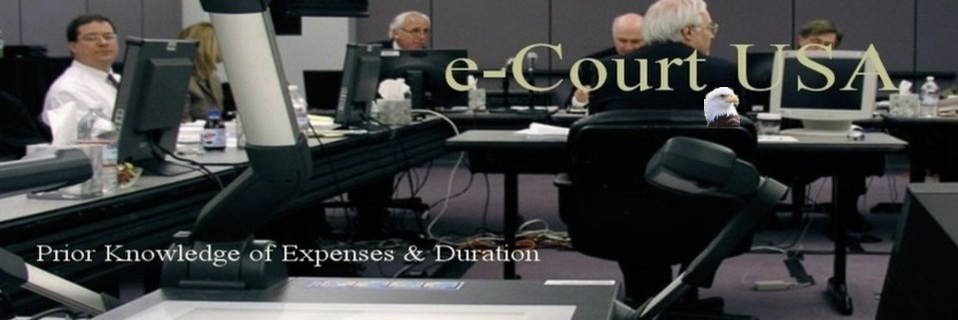Why does e-Court calls itself a court ? According to Webster dictionary a court is " an official
assembly for the transaction of judicial business". Case law
means "law established by judicial decision" A judge is "a
person who speaks right." The terms 'court' and 'judge'
and 'right' and 'litigation' are not legally protected.
Nobody has the exclusive right to the use of those words. On the basis of the following e-Court is referred as a private
court: 1. A transparent, predictable adversarial proceeding; 2.
Competent and experienced professional judges and/or arbitrators; 3. Reliable and
impartial judges and/or arbitrators; 4. An affordable procedure, including the legal
costs of legal aid; 5. A binding verdict. Is there any likelihood of confusion with the name
court? Between the traditional name "court" and e-Court court there can
be no confusion. E-Court stresses where possible it is not a public
court, but a private foundation. Lawyers and legal advisers of the
conflicting parties, because of their training are in a position to
clarify the difference and inform their clients as such, if deemed
necessary. Is e-Court a real court ? Yes, e-Court is a real, albeit a private court. e-Court
aims to provide competent, affordable, speedy and fully transparent
justice. e-Court
offers a predictable process and a binding verdict. e-Court is not a government institution. Are the e-Court judges and/or arbitrators truly independent and
impartial? e-Court has many safeguards build in the process. 1. We select judges and/or arbitrators who are able to assess whether a conflict of interest exists. 2. We make appointments with judges and/or arbitrators strictly based on a code of conduct. 3. Parties may make a request to challenge any ruling if they believe that the judges and/or arbitrators have not been independent and/or impartial. 4. There is an evaluation system in each case, where parties, their representing lawyers and judges and/or arbitrators give feedback on the e-Court procedure. 5. There is appeal possible where a new judge and/or arbitrator looks at the case. 6. Contact with the judge and/or arbitrator is only possible through the e-Court system. An email to the judge and/or arbitrator goes automatically to the other party.
Who ensures the quality of e-Court and how you monitor its
legal quality? The administration and board of the Foundation is responsible. The independent supervisory board supervises the administration. Both in terms of legal quality, the safety of the website and incoming and outgoing moneyflows.
e-Court has taken measures to guarantee the legal quality, these include: 1. The selected judges and/or arbitrators are specialized in civil law. 2. Judges all have formal law school education with at least 10 years experience as a lawyer. 3. Judges can be (old) notaries, lawyers and judges. 4. The administration and board of the foundation as well the supervisory board read all rulings for quality. Although the administration has no influence on the assessment of the case, it may well lend support (from other judges) on final rulings. 5.Detailed legal computerized systems prevent manual errors in rulings, both on the allocation of costs in the actual ruling and whether or not particular taxes should be included.
Is e-Court safe ? e-Court has taken all measures to safeguard information. The website is heavily protected like internet banking with leading banking institutions. The security of the site remains constant in our attention.
Is it difficult to litigate through the e-Court website?
It is very simple. If you manage to read this internet page and have private e-mail, you have all the skills in house to join e-Court.
How can litigation be so cheap?
We eliminated all delays and inefficiencies in the trial. Furthermore, costs can come further down through automatic alerts & information via e-mail. The time an experienced expert judge and/or arbitrator should spend on your case, is pure thinking, not paperwork. This saves the cost.
















